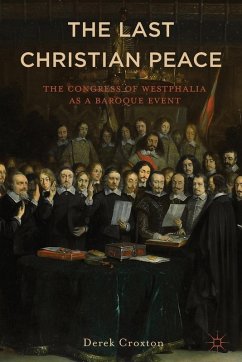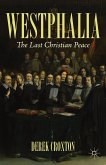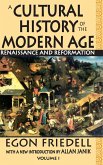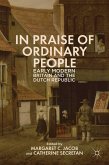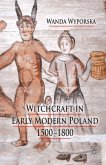This sweeping, exhaustively researched history is the first comprehensive account of the Peace of Westphalia in English. Bringing together the latest scholarship with an engaging narrative, it retraces the historical origins of the Peace, exploring its political-intellectual underpinnings and placing it in a broad global and chronological context.
"It provides a detailed but comprehensible account of the Westphalia negotiations that interweaves a narrative of events and an analysis of the structures and mechanisms of diplomatic interaction. ... an informative and important book." (David Parrott, The Journal of Modern History, Vol. 87 (4), December, 2015)
'Here is everything one might want to know about the Peace of Westphalia and more. . . . Recommended.' - CHOICE
'A timely and extremely important study of the central peace settlement in modern European history, by the leading Anglophone historian of seventeenth-century European diplomacy. Derek Croxton's book is the most up-to-date study of the Peace of Westphalia in any language and will be essential reading for students of history and of international relations.' - Hamish Scott, Professor, University of Glasgow, UK
'Derek Croxton's scholarly, detailed account of the negotiations in Westphalia makes the actors' tangled motives, aims, tactics and assumptions comprehensible to the modern reader, thereby showing why a dreadful war continued for five years without even ending in a comprehensive peace. The peace settlement that emerged is seen not as the foundation of a new, modern international system, but as a distinctly Baroque product, the last effort at a Christian peace and the first of similar inconclusive settlements after major 17th-18th century wars - an important revisionist contribution.' - Paul Schroeder, Professor Emeritus of History, University of Illinois Urbana-Champaign, USA
'Here is everything one might want to know about the Peace of Westphalia and more. . . . Recommended.' - CHOICE
'A timely and extremely important study of the central peace settlement in modern European history, by the leading Anglophone historian of seventeenth-century European diplomacy. Derek Croxton's book is the most up-to-date study of the Peace of Westphalia in any language and will be essential reading for students of history and of international relations.' - Hamish Scott, Professor, University of Glasgow, UK
'Derek Croxton's scholarly, detailed account of the negotiations in Westphalia makes the actors' tangled motives, aims, tactics and assumptions comprehensible to the modern reader, thereby showing why a dreadful war continued for five years without even ending in a comprehensive peace. The peace settlement that emerged is seen not as the foundation of a new, modern international system, but as a distinctly Baroque product, the last effort at a Christian peace and the first of similar inconclusive settlements after major 17th-18th century wars - an important revisionist contribution.' - Paul Schroeder, Professor Emeritus of History, University of Illinois Urbana-Champaign, USA

